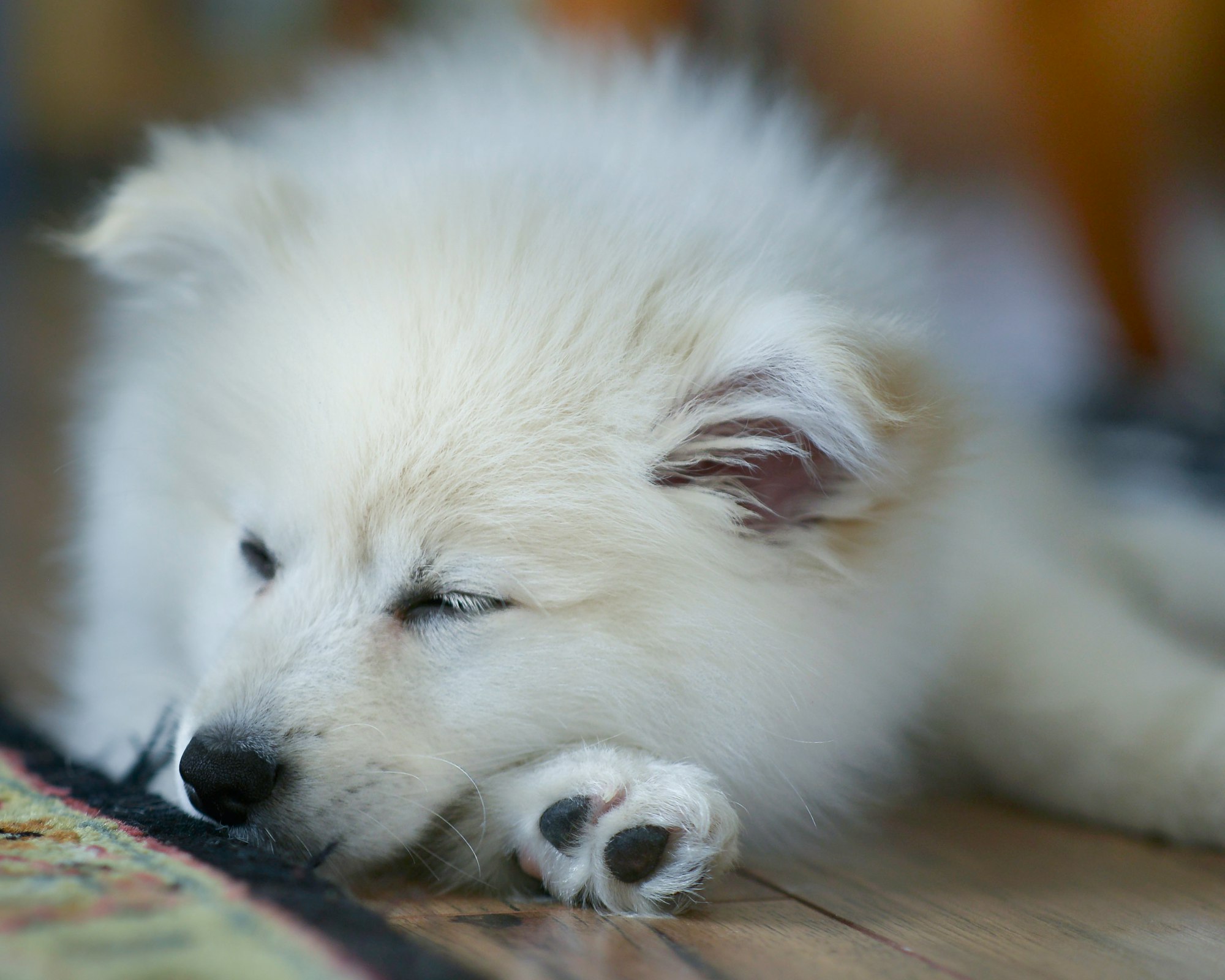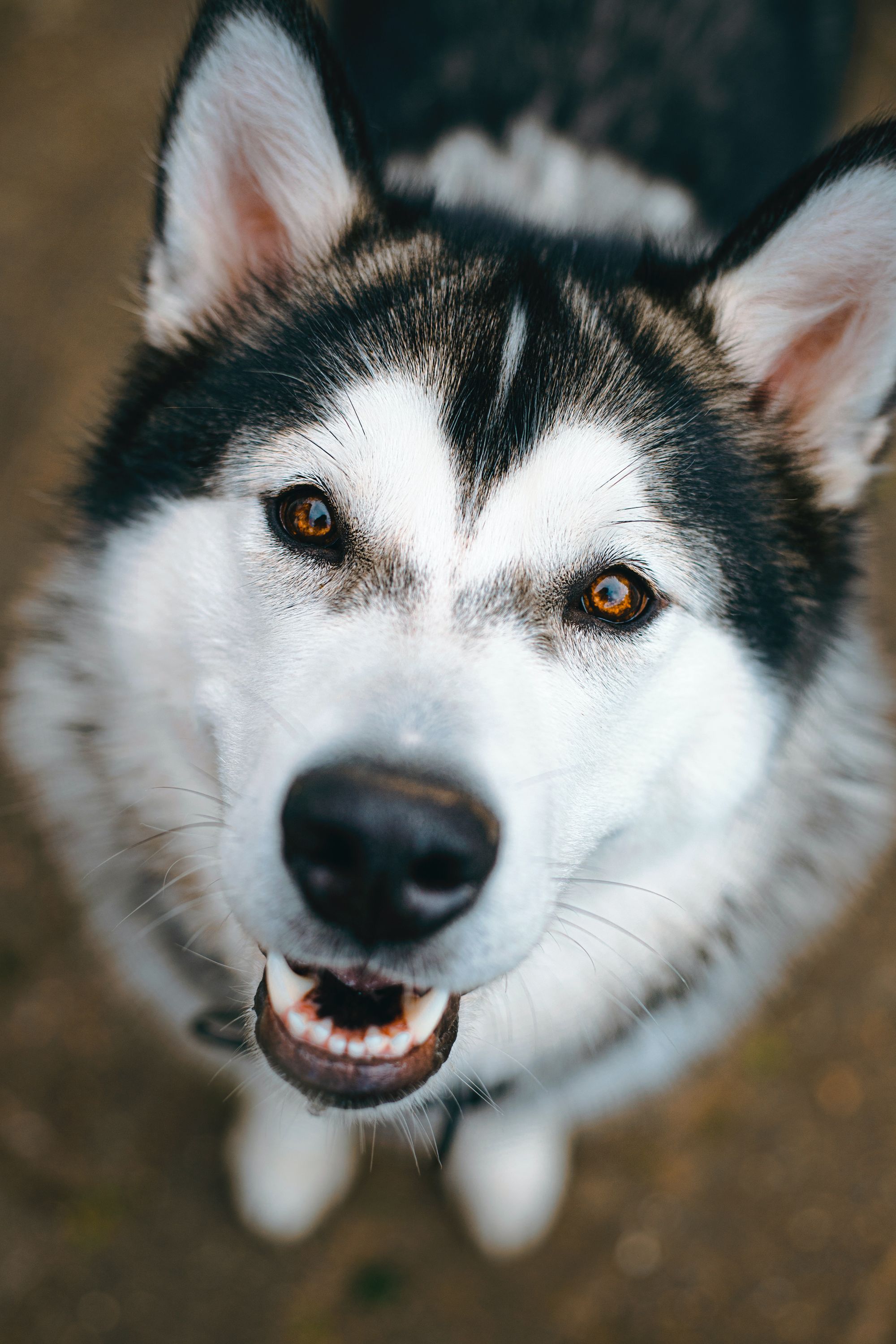Tiring out a puppy is essential for their overall well-being and development. Puppies are bundles of energy, and ensuring they get enough physical and mental stimulation is crucial for their health and happiness. By providing appropriate outlets for their energy, you can prevent behavioral issues and promote a balanced and calm demeanor in your furry friend.
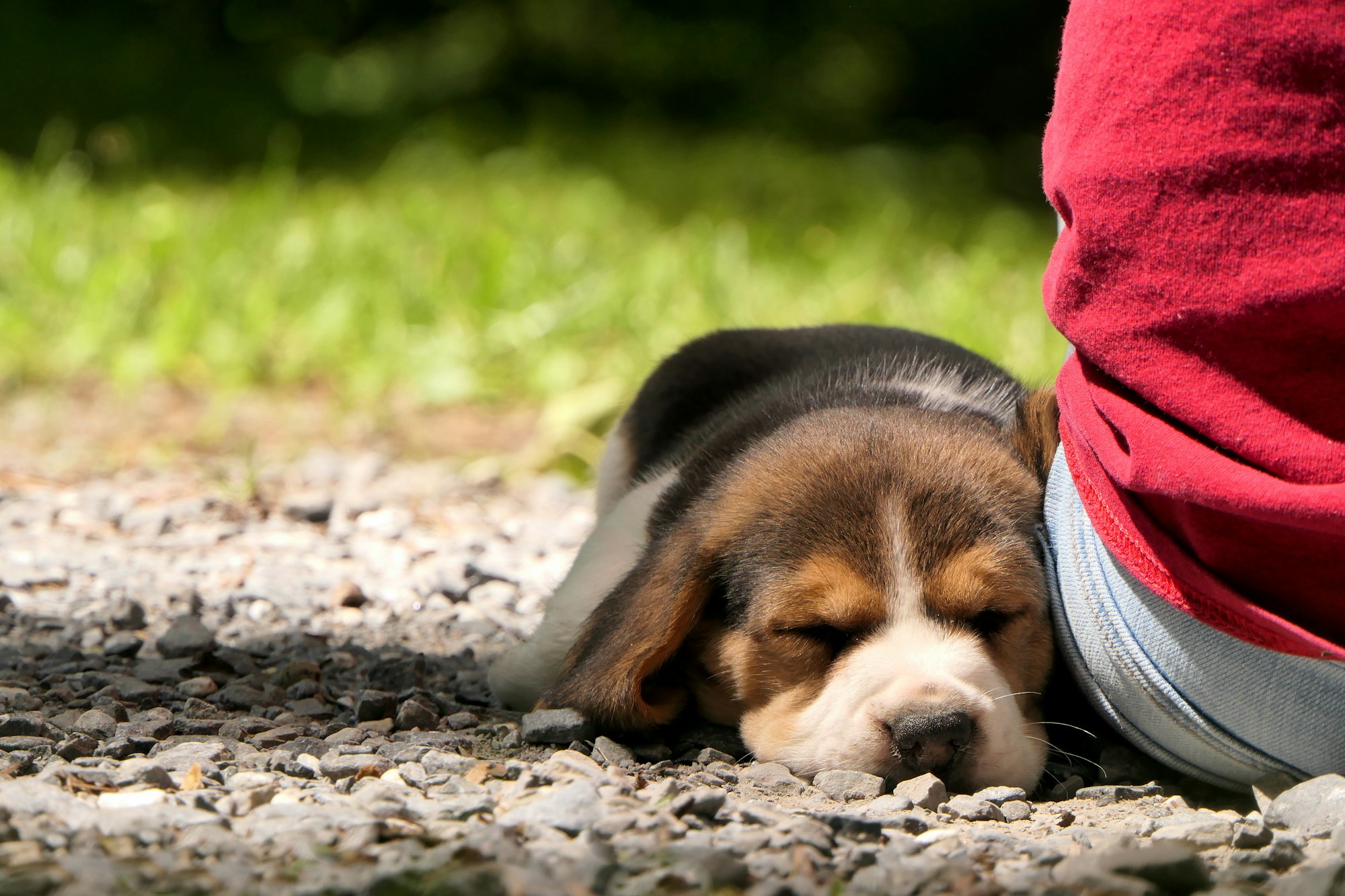
Understanding your puppy's energy levels is the first step in effectively tiring them out. Puppies have varying energy levels depending on factors such as breed and age. Younger puppies tend to have higher energy levels, while older puppies may have more controlled bursts of energy.
When it comes to physical activities, there are several options to tire out your puppy. Regular walks provide exercise and mental stimulation through exposure to different environments. Interactive playtime, such as playing with toys or engaging in games like hide-and-seek, can be highly beneficial. Puppy agility training helps to expend energy while also challenging their coordination and problem-solving skills. Engaging them in a game of fetch or tug-of-war can also provide a great outlet for their energy.
Mental stimulation is equally important in tiring out a puppy. Mental activities tire out their minds just as physical activities tire out their bodies. Incorporating puzzle toys, treat dispensers, and obedience training sessions can provide the mental challenges your puppy needs.
It is important to note that rest is equally crucial for a tired puppy. Creating calm spaces within your home where your puppy can retreat and relax is essential. Ensuring they have sufficient sleep and nap time allows them to recharge their energy levels.
To effectively tire out a puppy, it is important to avoid common mistakes. Over-exercising them can lead to exhaustion and potential health issues. It is vital to tailor the activities to your puppy's age, breed, and physical capabilities.
By understanding the importance of tiring out your puppy, providing adequate physical and mental stimulation, and allowing for sufficient rest, you can ensure a well-rounded and content companion.
Key takeaways:
- Understanding your puppy's energy levels: Recognize that puppies have different energy levels based on breed and age, and adjust activities accordingly.
- Physical activities: Engage in regular walks, interactive playtime, agility training, and games like fetch or tug-of-war to help tire out your puppy.
- Mental stimulation: Incorporate mental exercises and training sessions to provide mental stimulation and exhaust your puppy's brain as well.
Why is it Important to Tire Out a Puppy?
It is crucial to tire out a puppy for multiple reasons. Exercise plays a vital role in releasing pent-up energy, which helps prevent destructive behavior within the home. Moreover, engaging in physical activity promotes muscle development and enhances coordination. Regular exercise is also essential for maintaining a healthy weight and overall physical well-being.
By tiring out a puppy, you can significantly improve the quality of their sleep, which is crucial for their proper growth and development. Additionally, exercise provides mental stimulation, which reduces boredom and contributes to a happy, well-balanced puppy. For even better results, consider incorporating interactive dog toys and mentally challenging games during playtime to further tire out your puppy and enhance their cognitive abilities.
Understanding Your Puppy's Energy Levels
Understanding your puppy's energy levels is crucial in ensuring they get the appropriate amount of exercise and mental stimulation. Here are some steps to help you better understand and tire out your puppy:
- Observe and assess your puppy's energy level throughout the day.
- Create a consistent exercise routine that includes both physical activities (such as walks or playtime) and mental stimulation (puzzle toys or training sessions).
- Adjust the duration and intensity of exercise based on your puppy's age, breed, and individual needs.
- Provide interactive toys and games that engage your puppy's mind and keep them entertained.
- Consider enrolling in puppy classes or engaging in activities like agility training to provide a structured outlet for your puppy's energy.
Pro-tip: Remember that mental stimulation is just as important as physical exercise in tiring out your puppy. Incorporate training sessions or brain games into their daily routine to understand and meet their energy needs effectively.
What is the Typical Energy Level of a Puppy?
The typical energy level of a puppy varies based on factors like age and breed. Puppies are generally high-energy and require plenty of activities to keep them engaged and prevent boredom. Small breeds tend to have lower energy levels compared to larger breeds. Younger puppies have bursts of energy followed by nap times, while older puppies have more stamina for longer play sessions.
It's essential to provide physical exercise and mental stimulation appropriate for your puppy's energy level to keep them happy and healthy. Regular walks, interactive playtime, and incorporating training sessions are effective ways to tire out a puppy.
How Does Age and Breed Affect a Puppy's Energy Level?
The energy level of a puppy is influenced by both their age and breed. How Does Age and Breed Affect a Puppy's Energy Level? Younger puppies tend to have higher energy levels compared to older puppies. This is because puppies go through a period of rapid growth and development, which requires a lot of energy. Different breeds have different energy requirements.
Some breeds, such as Border Collies and Labrador Retrievers, are known for their high energy levels, while others, like Bulldogs and Pugs, are typically more laid-back. Understanding the age and breed characteristics of your puppy can help you tailor their exercise and mental stimulation needs accordingly, ensuring they get the right amount of activity to tire them out.
Physical Activities to Tire Out a Puppy
Want to tire out your energetic pup? Look no further! In this section, we'll dive into the realm of physical activities that are sure to exhaust your furry bundle of joy. From regular walks to interactive playtime, puppy agility training to engaging games such as fetch or tug-of-war, discover the secrets to keeping your pup entertained and thoroughly worn out. So, let's lace up those shoes and get ready to engage in some playful adventures with your four-legged friend!
Regular Walks
Incorporating regular walks into your puppy's routine is crucial for their physical and mental well-being. These walks provide the necessary exercise to maintain a healthy weight and overall fitness.
- Stimulation: When you take your puppy on regular walks, they are exposed to new sights, sounds, and smells, which helps keep them mentally stimulated.
- Socialization: Regular walks offer opportunities for your puppy to encounter different people, other dogs, and various environments, allowing them to develop proper social skills.
- Training: Ensuring that you take your puppy on regular walks on a leash not only teaches them leash manners but also reinforces basic commands such as "sit" and "stay".
- Bonding: Walking together regularly strengthens the bond between you and your puppy, fostering trust and companionship.
Remember, make it a habit to keep your puppy on a leash during walks, bring water for hydration, and be mindful of their energy levels and limitations. Enjoy exploring the world together!
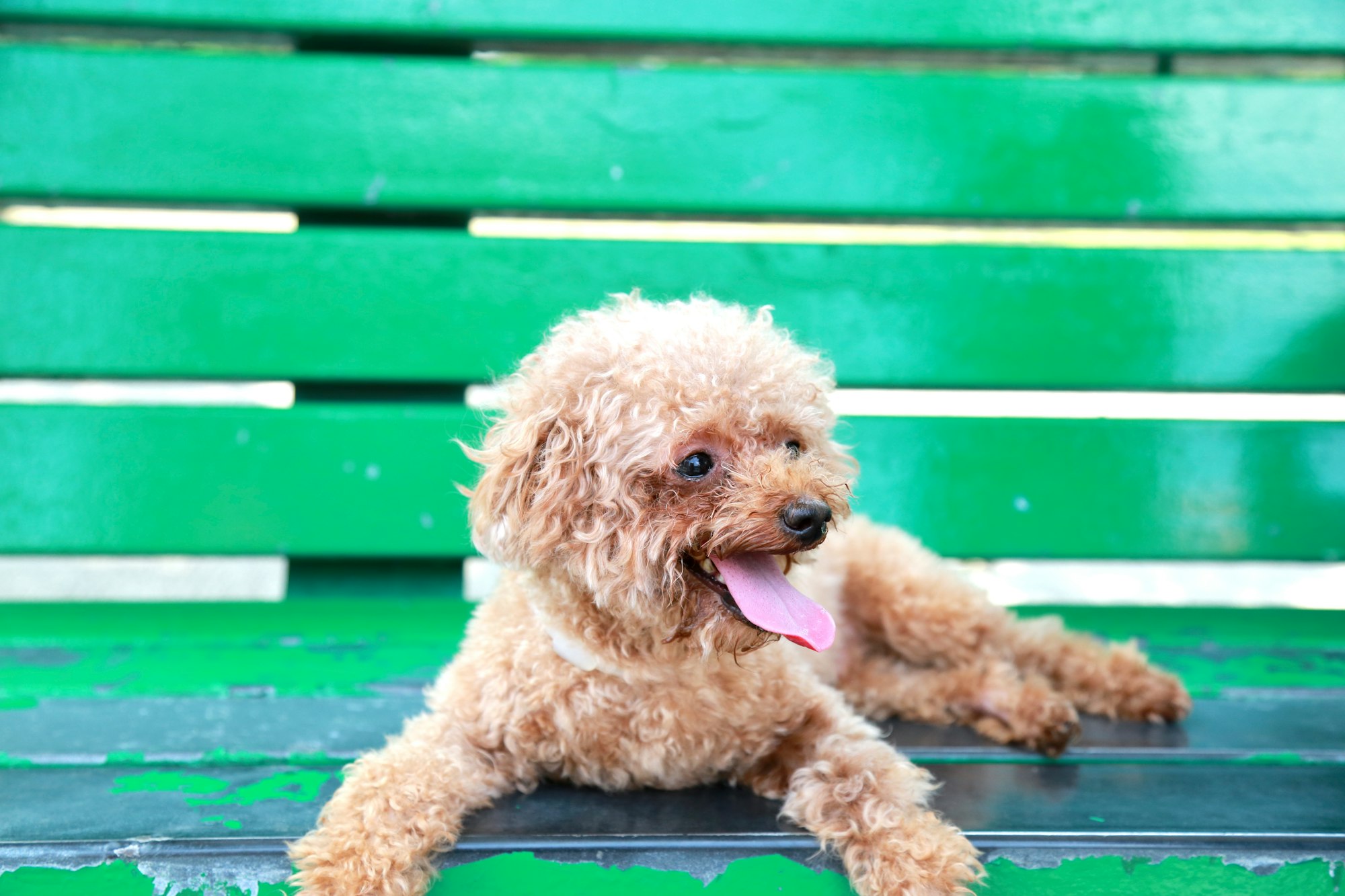
Interactive Playtime
Interactive playtime is crucial for both tiring out a puppy and ensuring their mental stimulation. Here are a few suggestions for activities during interactive playtime:
- Engage your puppy in a game of Hide and Seek by strategically hiding treats or toys around the house. This will fully engage their senses and keep them entertained.
- Release their energy and satisfy their natural instinct to play by participating in a lively game of Tug-of-War using a rope toy.
- Challenge your puppy's problem-solving abilities and keep them engaged by offering them puzzle toys that require them to figure out how to retrieve a treat.
- In your backyard or a park, partake in a game of Fetch using either a ball or a frisbee. This will allow your puppy to run and burn off any excess energy they may have.
- Opt for interactive toys that make noise or dispense treats when your puppy interacts with them. This will provide constant entertainment and mental stimulation.
Remember to always supervise playtime and choose toys that are appropriate for your puppy's age and size. Interactive playtime not only exhausts your puppy physically, but it also aids in their overall development and behavior.
Puppy Agility Training
Puppy Agility Training is a fantastic method to exhaust your energetic pup both mentally and physically. To get started, follow these steps:
- Prepare a dedicated training area with obstacles such as jumps, tunnels, and weave poles.
- Gently introduce your puppy to each obstacle, using positive reinforcement and treats to motivate them to give it a try.
- Gradually increase the difficulty of the course by adding new obstacles and challenging sequences.
- Regularly practice short and enjoyable sessions to prevent your puppy from feeling overwhelmed or bored.
- Once your puppy becomes more skilled, think about joining a puppy agility class or competition to enhance their training and socialization.
Always remember to ensure that agility training is a positive and enjoyable a positive and enjoyable experience for your puppy. So, have fun and witness the decrease in your pup's energy levels as their skills and confidence improve.
Fetch or Tug-of-War
Playing fetch or engaging in a tug-of-war with your puppy is not only a fun activity but also a great way to tire them out. Here are some reasons why fetch or tug-of-war is beneficial for your puppy:
| - Physical exercise: | Both fetch and tug-of-war require your puppy to run and move, providing them with much-needed physical exercise. |
| - Mental stimulation: | These games engage your puppy's mind as they have to focus on retrieving the toy or winning the tug-of-war. |
| - Bonding opportunity: | Playing fetch or tug-of-war builds a strong bond between you and your puppy. |
| - Training reinforcement: | These games can also be used as a training tool to reinforce commands such as "drop it" or "leave it." |
Remember to use appropriate toys and supervise the games to ensure your puppy's safety.
Mental Stimulation for a Tired Puppy
Incorporating mental stimulation for a tired puppy is crucial to keep them happy and content. Here are some activities to naturally incorporate for your puppy's mental stimulation:
| 1. Puzzle toys: | Engage your puppy's mind with interactive toys that require problem-solving skills, providing mental stimulation. |
|---|---|
| 2. Training sessions: | Enhance mental engagement by teaching your puppy new commands and tricks, exercising their brain while improving their obedience. |
| 3. Hide and seek: | Boost mental and physical stimulation by hiding treats or toys around the house and allowing your puppy to search for them. |
| 4. Sniffing games: | Stimulate your puppy's sense of smell by using scent-based games, such as hiding treats in boxes or utilizing a snuffle mat. |
| 5. Playdates: | Arrange social interaction with other dogs to tire out your puppy both physically and mentally. |
By incorporating these activities into your puppy's routine, you can ensure they expel energy and remain mentally engaged.
What are Some Mental Stimulation Activities for Puppies?
- Puzzle toys: These toys require puppies to figure out how to get treats or toys out of hidden compartments, stimulating their problem-solving skills.
- Hide-and-seek games: Hide treats or toys around the house or in the yard for your puppy to find, encouraging their natural scavenging instincts.
- Training sessions: Teach your puppy new commands and tricks through positive reinforcement training, keeping their mind active and engaged.
- Scent games: Hide treats or toys with strong scents and encourage your puppy to find them using their sense of smell.
- Interactive toys: Provide toys that make noises or dispense treats when manipulated, keeping your puppy mentally stimulated and entertained.
How to Incorporate Training Sessions to Tire Out a Puppy?
To tire out a puppy effectively, you can incorporate training sessions into their daily routine. Here are some steps to follow on how to incorporate training sessions to tire out a puppy:
- Begin by starting with basic obedience training for your puppy, such as teaching them commands like sit, stay, or come when called.
- Gradually progress to introducing more complex commands and tricks, such as teaching them to "shake paw" or "roll over".
- Make use of positive reinforcement techniques during the training sessions. Offer treats or praise to reward your puppy for successfully completing each command.
- To add physical activity to the training, incorporate exercises like running or jumping while your puppy follows the given commands.
- Keep the training sessions short and frequent throughout the day, as puppies tend to have short attention spans.
- Ensure that the training sessions are engaging and enjoyable for your puppy, turning it into a fun bonding experience for both of you.
Remember to make necessary adjustments to the training sessions according to your puppy's age, breed, and energy level. Consistency in training and providing sufficient exercise will help tire out your puppy while promoting their mental and physical development.
Enjoy the process of bonding with your adorable furry friend!
The Importance of Rest for a Tired Puppy
Looking after a lively puppy can be exhausting, but ensuring they get enough rest is vital for their overall well-being. In this section, we'll explore why rest is essential for a tired puppy and discover strategies for creating calm spaces where they can recharge. We'll also discuss the importance of ensuring your puppy gets sufficient sleep and naps to support their growth and development. So, let's dive in and learn how to help our furry friends find the rest they need!
Creating Calm Spaces for Your Puppy to Rest
Creating calm spaces for your puppy to rest is crucial for their overall well-being and relaxation. Here are some steps to assist you in creating a peaceful and comfortable resting area for your puppy:
- Choose a quiet location: Find a spot in your home that is free from distractions and noise.
- Provide a cozy bed: Invest in a comfortable and supportive bed that is the right size for your puppy.
- Use calming scents: Consider incorporating lavender or chamomile scents, as they are known to promote relaxation.
- Block out light: Utilize curtains or blinds to establish a dark and peaceful environment for your puppy to rest.
- Play soothing sounds: Soft music or white noise can help mask any loud noises and create a calming atmosphere.
- Limit access: Set boundaries and designate specific resting areas for your puppy to prevent overstimulation.
By following these steps, you can ensure that your puppy has a serene and restful space to recharge and unwind.
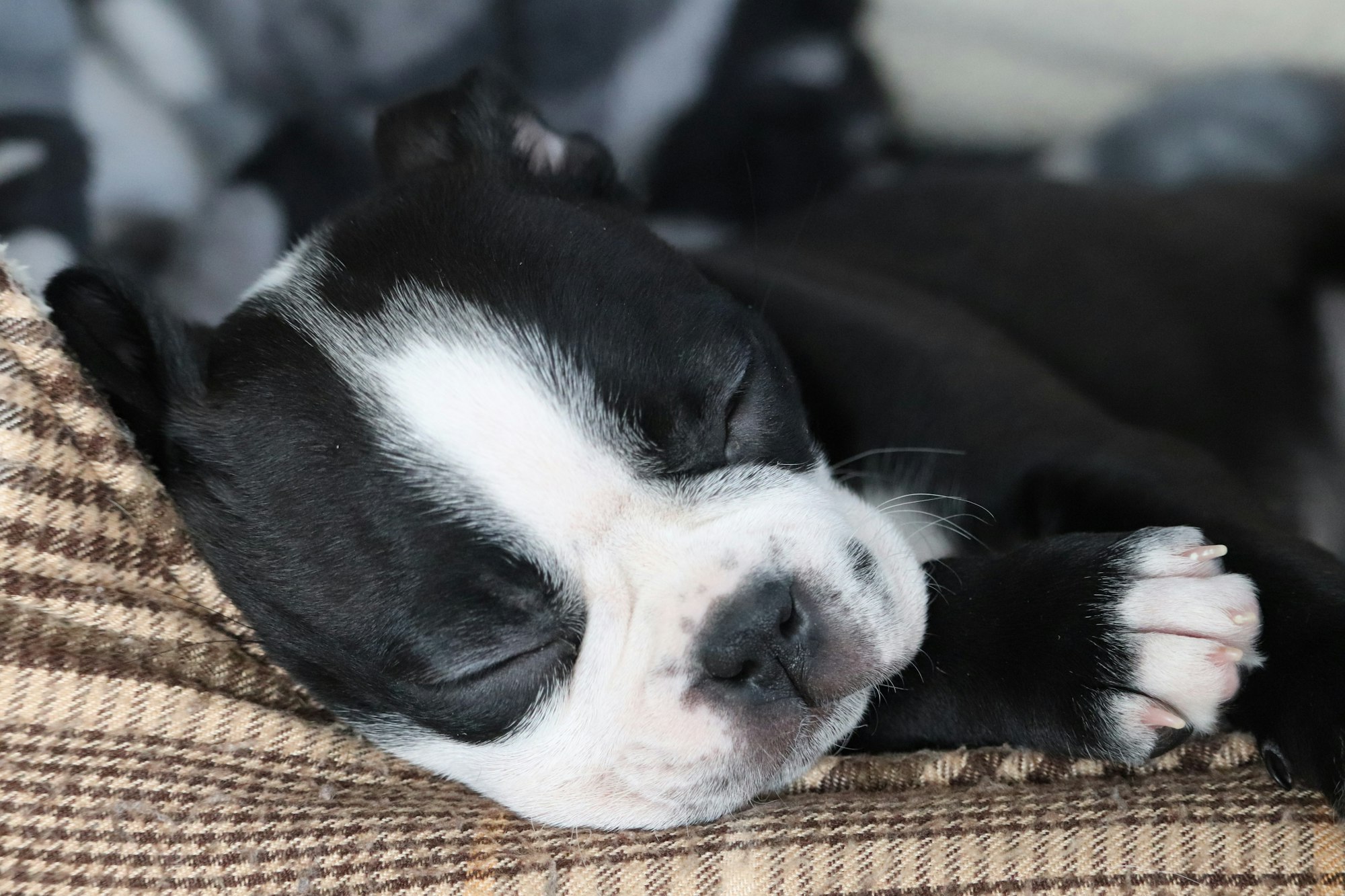
Ensuring Sufficient Sleep and Naps for Your Puppy
Properly managing the sleep and nap schedule of your puppy is of utmost importance for their overall well-being and development. To guarantee enough rest for your furry companion, follow these steps:
- Create a comfortable sleeping area with a cozy bed or crate.
- Establish a consistent bedtime routine to signal to your puppy that it's time to sleep.
- Limit stimulating activities before bedtime to help your puppy wind down.
- Provide a quiet and peaceful environment free from distractions.
- Monitor your puppy's sleep patterns and adjust their schedule as needed.
By prioritizing your puppy's sleep, you will ensure they have the energy they need for play and training during their waking hours. Remember, a well-rested puppy is a healthy and happy puppy!
Common Mistakes to Avoid when Tiring Out a Puppy
When it comes to tiring out a puppy, it's vital to steer clear of common mistakes that may hinder their physical and mental development. Here are some things to avoid:
Over-exercising: Puppies have growing bones and joints, so excessive exercise can cause damage.
Ignoring signs of fatigue: It's crucial to give your puppy breaks when they display signs of tiredness to prevent exhaustion.
Using the wrong activities: Engage in age-appropriate activities to prevent injuries or frustration.
Lack of mental stimulation: Mental exercise is just as critical as physical exercise to keep puppies entertained and tire them out.
Frequently Asked Questions
- How can I tire out my high energy 8-week-old American Cocker puppy?
- Providing your puppy with both physical and mental exercise is key. You can try taking them for short walks, engaging them in play games, or using DIY toys to keep them occupied and tire them out.
- What is the recommended amount of exercise for an 8-week-old puppy?
- For an 8-week-old puppy, you can follow the general guideline of multiplying their age in months by 5 to determine the amount of exercise they need. It is recommended to provide exercise two to three times per day.
- How can I safely exercise my puppy without overstressing their developing joints?
- To safely tire out your puppy, avoid hard-core exercises such as running or jogging until they are older and their joints are more developed. Instead, focus on low-impact activities like short walks, play games, and mental stimulation.
- Are there any specific activities or toys that can help tire out high energy puppy breeds?
- High energy puppy breeds, like Australian Cattle Dogs or Queensland Heelers, often benefit from "job" activities that simulate their breed instincts. You can engage them in catching a frisbee, playing fetch, or searching for hidden treats.
- Can mental stimulation help tire out my puppy?
- Absolutely! Mental stimulation through puzzle toys, training sessions, and search games can be an excellent way to tire out a puppy. It not only helps calm their energy but also prevents destructive behaviors and promotes their development.
- What advice can dog trainers offer for tiring out a high energy pup
- Professional dog trainers suggest having a game plan and incorporating everyday activities into your puppy's routine. Engaging them in mental and physical exercises, along with using appropriate gear and toys, can help effectively tire out a high energy pup while keeping them happy and stimulated.
